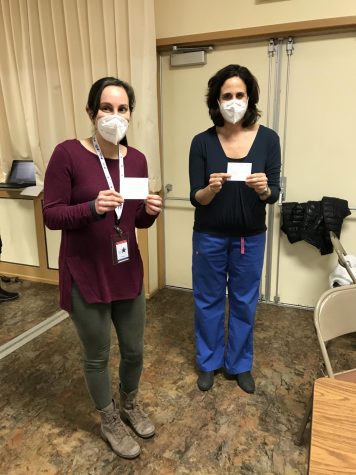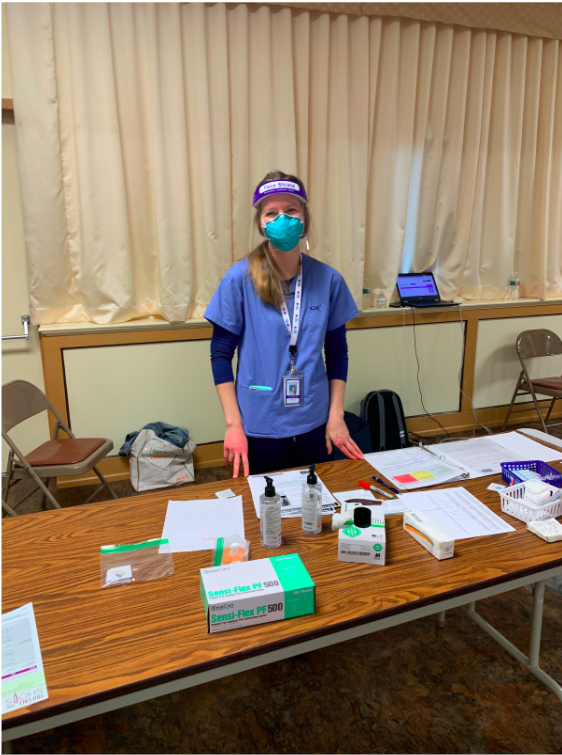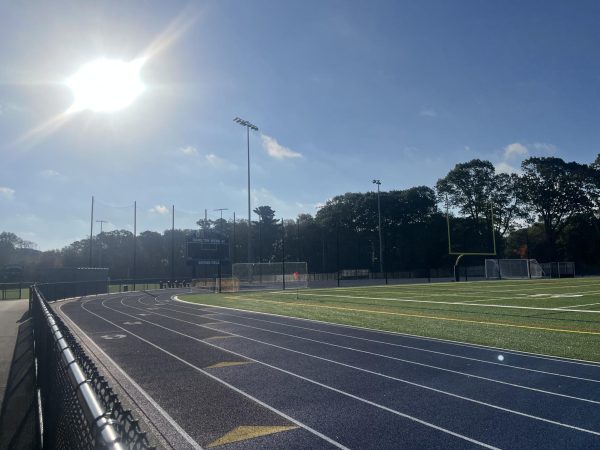Everything To Know About The COVID-19 Vaccine
Nurse working to vaccinate first responders
On December 11th, 2020, the Pfizer-BioNTech and Moderna COVID-19 vaccines were approved for use by the FDA. Others are in the works, but haven’t been approved yet. Their webpage states basic information about the vaccines, including the known side effects and additional information and FAQs for readers to explore. Regarding distribution in Massachusetts, state officials and public health officials have a plan involving three different phases spread out over a 6-8 month period.
As they do with all new medical advancements, concerns arise from people worldwide. Some stress over the contents of the actual vaccine, or the side effects of taking it. In response to these questions, programs like VAERS and V-Safe exist to track vaccination reactions and side effects and gather them into data. As of right now, Webmd says there are no side effects other than common dosage symptoms such as pain in the vaccinated muscle area, headaches, fatigue, fever, or chills.
Hamilton Wenhams own district nurse leader, Lea Tabenkin says “ what’s really interesting, it is an mRNA vaccine, which is this new technology…they’ve been working on it for 10 years but it’s actually the first of its kind to become a vaccination.”
To understand how the COVID-19 vaccine would work, it’s beneficial to know a little bit about vaccines in general. The CDC webpage has a section dedicated to explaining the basics of vaccines, in simple words saying that a vaccine contains the same germs as the disease it is trying to prevent. When a patient’s body takes in those germs, it produces antibodies that would normally be used to fight against the virus. However, the mRNA vaccine is a little different.
Tabenkin describes it by saying “ it doesn’t have any live virus, it doesn’t get in the nucleus so it doesn’t change the DNA.”
The CDC’s page on the mRNA vaccine explains in detail how this is contrasting from a regular vaccine and affects the body’s immune system in a different way.

Any individual might have their own reaction to a vaccine, and most will know if they are allergic. When the district nurse leader, Lea Tabenkin, took part in a volunteer program to help vaccinate first responders and essential workers, she explained that she would ask a lot of questions ahead of time to ensure a patients’ safety.
“ We just want to watch the person after the injection and make sure they’re not having any reactions, and if they do have a reaction- we’re vaccinating first responders who can take care of them”, Tabenkin says. In case of an emergency, they are always prepared.
Most of the older students at HW and the general public will get their doses later in the year, from around April to August. Younger students will likely not get vaccinated for much longer, as the two vaccines available are approved for ages 16+ and 18+. Teachers, who are considered essential workers, will have gotten their doses much earlier. Many of the nurses at Hamilton Wenham like Tabenkin have already gotten their vaccinations.
Maybe unfamiliar to any person who gets a yearly flu shot, the covid vaccine has two different doses. For the Moderna vaccine, the second dose comes 28 days after the initial injection. For the Pfizer- BioNTech, the second dose comes 21 days after the first. This isn’t odd for vaccines, as many others such as the Chickenpox vaccine also comes in a set of two shots.
Because only people of age can get the vaccines at this time, it is unlikely that most students or adolescents will be vaccinated so soon.
Tabenkin shares that “ the goal of this vaccine is to have a herd immunity… if all of the adults get it- that’s how we’ll get rid of the spread”. She went on to mention, “they’re saying 70% of the population should be vaccinated in order to have a good response”.
Considering this, vaccines wouldn’t be able to be mandated by schools, but older students would be able to acquire their doses in the future. This means masks and social distancing will be around for a little while longer, as these new technologies work to immunize the population from COVID-19.
Lina Sudachi is a freshman at Hamilton-Wenham this year. She likes to write and wanted to try something new like journalism to spread her interests. She...







